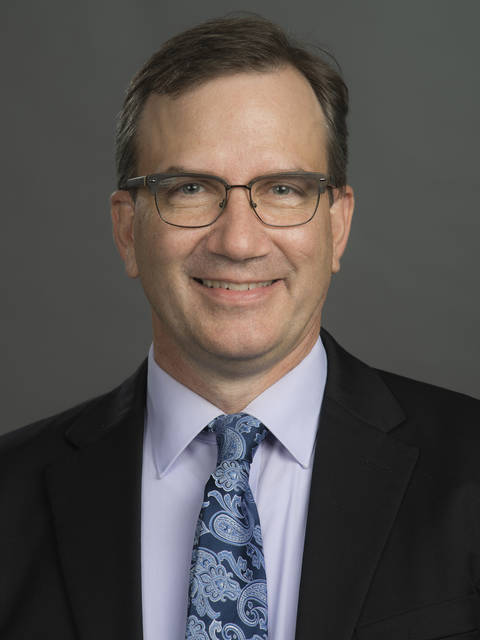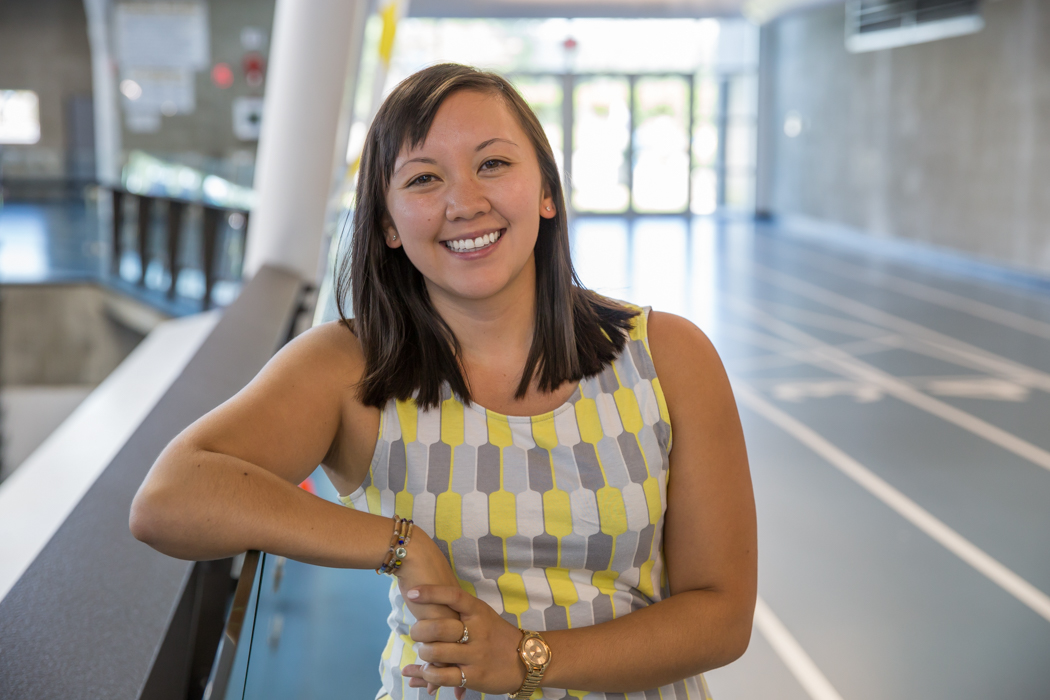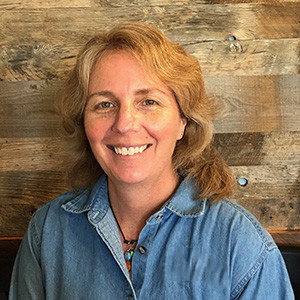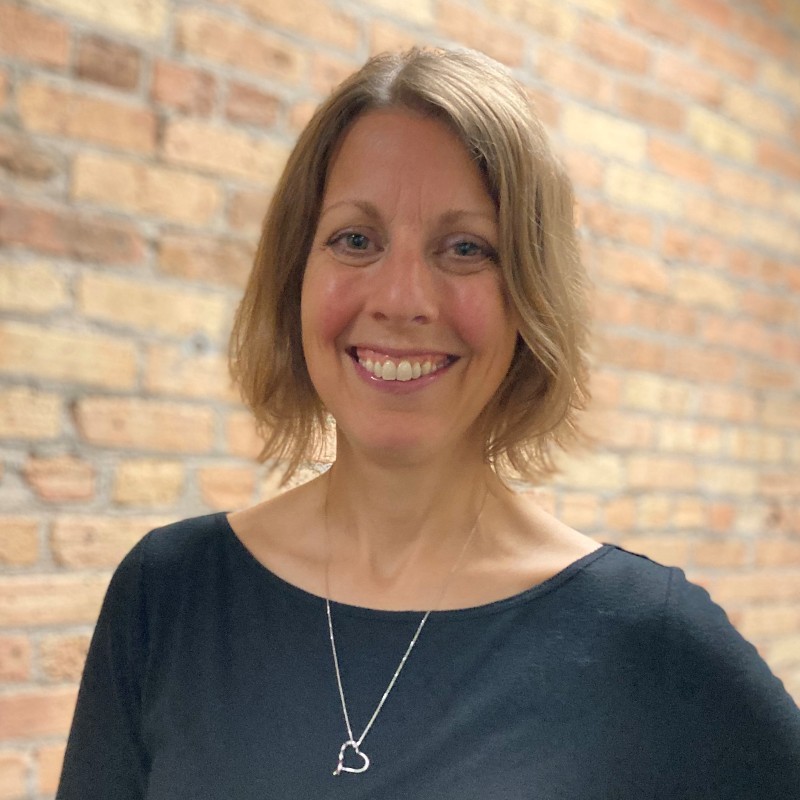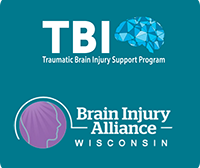
2022 WI Brain Injury Conference
Join us VIRTUALLY for the Wisconsin Brain Injury Conference
CONFERENCE FEES
Healthcare Professionals: $175
Caregivers/Survivors: $45
The Brain Injury Alliance of Wisconsin, SOAR Fox Cities, and the UW–Madison Interprofessional Continuing Education Partnership are joining again to plan the Annual Wisconsin Conference on Brain Injury. Although we'd love to gather in-person, we are "going virtual" to make sure we can connect this spring.
Karl Curtis, BA, Executive Director Emeritus with the Brain Injury Alliance of Wisconsin and Julie Biesterveld, BA, CBIS, Traumatic Brain Injury Support Program Coordinator with SOAR Fox Cities will be your hosts and guide learners through the conference.
Thoughts from our 2021 virtual participants:
"I feel that the variety of perspectives presented today offered a well rounded
presentation encompassing and touching on all areas involved in an individuals
recovery and it was enlightening to see this."
"I don't work in healthcare but I will use the information to provide better support to people who there is suspected TBI but haven't recognized it or gotten the medical attention for it."
"I plan to incorporate new information, assessment/screening tools and training information
into my own practice but also to educate and train my co-workers.
I would love to establish a training program for frontline staff..."
PRACTICE GAP AND NEEDS
Millions of Americans experience a brain injury each year. Research continually generates new insights and treatment options, creating a practice gap among healthcare professionals and a need for caregivers, family members and survivors.
ELEMENTS OF COMPETENCE
This educational activity is designed to change learner competence and focuses on the following competency areas:
- The American Board of Medical Specialties: Medical Knowledge, Practice-based Learning Improvement, Interpersonal and Communication Skills and Systems-based Practice.
- The National Academy of Medicine: Provide Patient-Centered Care and Employ Evidence-based Practice.
- Nursing and Interprofessional: Values/Ethics for Interprofessional Practice, Interprofessional Communication and Teams and Teamwork.
- UW ICEP Diversity, Equity, and Inclusion: Engage in Self-reflection.
AUDIENCE
This conference is intended for physicians, advance practice nurses, nurses, physician assistants, psychologists, social workers, researchers, brain injury survivors, caregivers, family members, and others with interest in traumatic brain injury.
Learning Objectives
By the end of the conference, professionals as members of the healthcare team, brain injury survivors, caregivers, family members, and others with interest in traumatic brain injury will be able to:
- Describe the lifelong challenges that affect a person with a brain injury.
- Explain treatment options available to people affected by brain injury, how to access them, and make the best use of them.
- Apply best practices for brain injury treatment to their clinical practice.
- Discuss the roles and responsibilities of interprofessional healthcare team members who care for brain injury survivors.
Funding for the TBI Support Program of SOAR Fox Cities is provided by a grant from the Basic Needs Giving Partnership Fund
within the Community Foundation for the Fox Valley Region supported by the
U.S. Venture Fund for Basic Needs, the J.J. Keller Foundation and other community partners.
The University of Wisconsin–Madison Interprofessional Continuing Education Partnership (ICEP), the Brain Injury Alliance of Wisconsin, and SOAR Fox Cities
gratefully acknowledges the financial support from the Neuroscience Group, Learning Rx, Audrey Nelson and Reality Unlimited LLC, and the Brain Injury Alliance of Wisconsin Board.
Agenda
Interactive programming will include select sessions with opportunities to ask our presenters questions, and an optional virtual "happy hour" on the first day of the conference to develop strategic networks and support ongoing learning.
Individual sessions will recorded ahead of the conference. Learners will have access to supplemental material and will be able to view select session recordings for 45 days following the conference. The entire conference will not be recorded.
Day One
Wednesday, May 25, 2022
8:30 AM - 3:30 PM (All times are in CST)
Time (in CST) | Session | Learning Objectives |
| 8:30 - 8:45 AM | WELCOME*No continuing education credit is being provided for the Welcome Session | |
Co-Host ~ Julie Biesterveld, BA, CBIS, Traumatic Brain Injury Support Program Coordinator, SOAR Fox Cities, Inc. | Co-Host | |
KEYNOTE | ||
8:45 - 9:45 AM | Keynote Session |
|
| 9:45 - 9:55 AM | BREAK | |
| 9:55 - 10:55 AM | Brain Injury and Corrections |
|
| 10:55 - 11:05 AM | BREAK | |
| 11:05 AM - 12:05 PM | Employment After Brain Injury |
|
| 12:05 - 12:45 PM | LUNCH BREAK | |
| 12:45 - 1:45 PM | Lessons from a TBI Poetry Group |
|
| 1:45 - 1:55 PM | BREAK | |
| 1:55 - 2:55 PM | Concurrent Sessions | |
Post Concussion Headache |
| |
Yoga and Meditation for Brain Injury: Evidence, Innovations During COVID, and Ways Forward *No continuing education credit is being provided for this session | ||
| 2:55 - 3:00 PM | DAY ONE CLOSING REMARKS & THANK YOU*No continuing education credit is being provided for the Closing Remarks | |
Co-Host | Co-Host | |
| 3:00 - 3:30 PM | Virtual Networking *No continuing education credit is being provided for the Virtual Networking session | |
_____________________________________________
Day Two
Thursday, May 26, 2022
8:30 AM - 3:00 PM (All times are in CST)
Time (in CST) | Session | Learning Objectives |
| 8:30 - 8:45 AM | WELCOME*No continuing education credit is being provided for the Welcome Session | |
Co-Host | Co-Host | |
8:45 - 9:45 AM | Introduction into Trauma Informed Care |
|
| 9:45 - 9:55 AM | BREAK | |
| 9:55 - 10:55 AM | Ambiguous Loss After Brain Injury |
|
| 10:55 - 11:05 AM | BREAK | |
| 11:05 AM - 12:05 PM | Improving Cognition Through Technology |
|
| 12:05 - 12:45 PM | LUNCH BREAK | |
| 12:45 - 1:45 PM | Home Modifications for TBI ~ Karl Curtis, BA, Director, Responsive Solutions, Inc. |
|
| 1:45 - 1:55 PM | BREAK | |
| 1:55 - 2:55 PM | Panel Discussion |
|
| 2:55 - 3:00 PM | DAY TWO CLOSING REMARKS & THANK YOU*No continuing education credit is being provided for the Closing Remarks | |
Co-Host | Co-Host | |
PROGRAM CHANGES
Emergency situations occasionally occur and may necessitate topic or speaker changes. The Brain Injury Alliance of Wisconsin, SOAR Fox Cities, Inc., and the University of Wisconsin–Madison ICEP reserve the right to alter or substitute a topic or speaker without prior notification.
WEBCAST LINKS
Links will be sent to learners prior to the workshop.
REQUIRED HARDWARE/SOFTWARE
Free, current version of Chrome, Firefox, Safari, or Microsoft Edge with audio and video capabilities. Some older browsers and Microsoft Explorer could produce error messages or not display the content correctly.
HOSTS
 | Julie Biesterveld, BA,CBIS Julie Biesterveld has been working in the field of brain injury since 2019, after a generous grant funded the creation of a TBI Support Program at SOAR Fox Cities, Inc in Appleton, Wisconsin. Her role as Program Coordinator is to create, implement and facilitate Community Education presentations to raise awareness of TBI and its prevalence and potential long-term effects. She also facilitates local brain injury support groups and has taken on the role of Interim Resource Navigator. She hopes her work is building the foundation for a strong, sustainable program which will be utilized by many in the years to come. In her personal life, Julie is a busy mom of two young children. She enjoys spending time with her family, being outdoors, painting, and practicing yoga. |
 | Karl Curtis, BA Karl Curtis is the director of Responsive Solutions and was the executive director of the Brain Injury Alliance of Wisconsin from 2015. He has presented on brain injury subjects before large and small groups throughout the state of Wisconsin, including twice before at the annual conference on brain injury. He is also the father of a brain injury survivor. |
SPEAKERS
 | Danielle Ciccone-Coutre, PsyD, ABPP Dr. Ciccone-Coutre is a Board Certified Rehabilitation Psychologist. She currently serves as the Chief Regional Psychologist for the Department of Corrections/Division of Community Corrections in Southeastern Wisconsin. Her career foci have included predominantly, work with traumatic brain injury (TBI) and posttraumatic stress disorder across the developmental lifespan. She is committed to the education and advocacy of TBI to promote awareness and implement change to support survivors, and those involved in their care. She spearheads and supervises research of TBI and interrelated disability(ies) in the Veteran’s Administration. She is also collaborating on female specific research in DOC/DCC, with interest in the role of neuro/rehabilitation psychology and neuropsychological aspects of criminal behavior. Dr. Ciccone-Coutre also maintains a private practice in northern Illinois. |
| Diane Hernandez, MS Diane is the director of Support for Careers at Children & Families of Iowa. She is a certified rehabilitation counselor, work incentive counselor, and brain injury specialist trainer. Diane received her master’s degree in counseling from Drake University in Des Moines, Iowa and has extensive experience working with a range of underserved populations. She has spoken in state and national forums on work incentives, effective collaboration, return to work after brain injury, working with impulsive populations, and the reverse job fair concept. |
 | Jerry Hoepner, PhD, CCC-SLP, ASHA Fellow Dr. Jerry Hoepner is a Professor at the University of Wisconsin - Eau Claire, Department of Communication Sciences and Disorders. He began teaching for UWEC CSD in 2003. He teaches courses in anatomy and physiology, undergraduate research, acquired cognitive disorders, dysphagia, and counseling. His research addresses healthcare perceptions, video self-modeling interventions for persons with acquired language or cognitive disorders, counseling methods and training, undergraduate research, non-course based learning, and instructional pedagogies. He is a founding editor of Teaching and Learning in Communication Sciences and Disorders (TLCSD) and editorial board member for Clinical Archives of Communication Disorders (CACD). He is an Aphasia Access affiliate and interviewer for the Aphasia Access Conversations Podcast series. He is a co-founder of the UWEC CSD SoTL Lab (scholarship of teaching and learning research). He continues to have a regular role in clinical contexts and supervision. He is a co-founder of the Chippewa Valley Aphasia Camp, co-founder of the Mayo Brain Injury Group, and founder of the Blugold Brain Injury Group. He also co-facilitates a Thursday Poetry Group for people with brain injuries and aphasia. Outside of work, Jerry is an avid outdoors person and enjoys traveling/spending time with his family. |
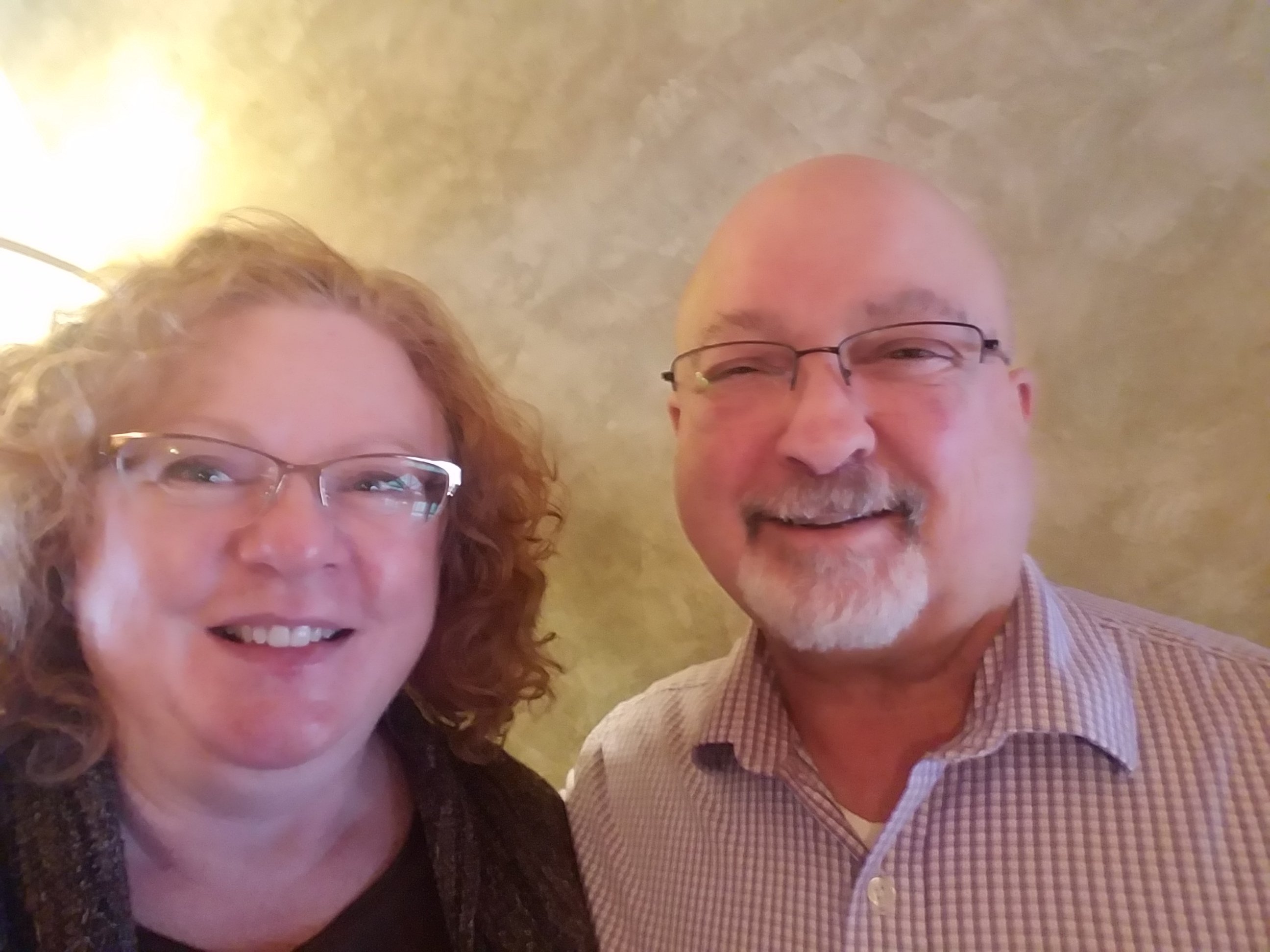 | Craig and Amy Jordan Craig Jordan is retired, happy, and enjoying life in New London, Wisconsin. He is also a survivor of a brain injury that occurred in 1985 while on duty as a ski patroller. Following his injury he worked for several years gaining back areas of functioning that had been affected, such as motor skills, speech, executive skills, memory, and social interaction. Even today, he continues to work on therapeutic activities to maintain skills in the areas of memory, language, and problem-solving. Unable to return to his previous employment in the area of accounting, Craig entered a graduate program in rehabilitation counseling at UW-Stout and received his degree in 1996. For next 21 years he supported individuals with brain injuries through his roles as a case manager, group home staff, day program staff, independent consulting and coaching, and serving as both a board member and Community Advocacy Specialist for the Brain Injury Association of Wisconsin. He remains active in the brain injury support group in Appleton and the Brain Injury Advocacy Program, under the umbrella of SOAR Fox Cities (an organization serving individuals with disabilities). Outside of his advocacy work, Craig enjoys word games, reading, golfing, and anything to do with aviation. Craig has been married to Amy since 1992. |
| Audrey Nelson, MS
In 1981 Audrey experienced a brain Injury in a car accident during her Freshman year of college; she was 18. In 1983, she was a co-founder and facilitator of a brain injury support group in Eau Claire that met for over 30 years. Audrey earned a Bachelor of Social Work (BSW) in 1987 and subsequently, a Graduate degree in Vocational Rehabilitation in 1994. Since 1985, she has had several different roles on the board of directors of the Brain Injury Alliance of Wisconsin. She also currently serves on the Mayo Clinic Brain Injury Advisory Board. Audrey began Reality Unlimited, LLC in 1995, providing residential care for individuals with brain injury. She recently sold this company and is looking forward to the next chapter in her work in brain injury advocacy. One of her most exciting projects was started in 2020, a brain injury & poetry support group that recently published a book of poetry. She is the mother of 3 adult children and recently, a proud grandmother who loves to spend time with her family. |
| Kalli Reinheimer, MSW, CSW, CBIS Kalli Reinheimer worked in the field of brain injury for 22 years. It was during that work that Kalli learned about trauma informed care (TIC) and became interested in a correlation between childhood trauma, the (sometimes) risky behaviors that precipitated the TBI and difficult behaviors some survivors of TBI displayed in rehab and day programming. This interest led to Kalli to becoming a (TIC) trainer and assisting with training the entire staff of her previous employer. Kalli has since moved on from working with survivors of TBI and is no longer an official TIC trainer, however, her passion for this work hasn’t waned. She is now the VP of Programs for Easterseals Southeast Wisconsin and is on a mission to help her new organization become trauma informed. Kalli is married and has an 11-year-old son, energetic dog, and 4 adult stepchildren. In her spare time, she enjoys spending time with family, reading, exercising, and watching her son play baseball. |
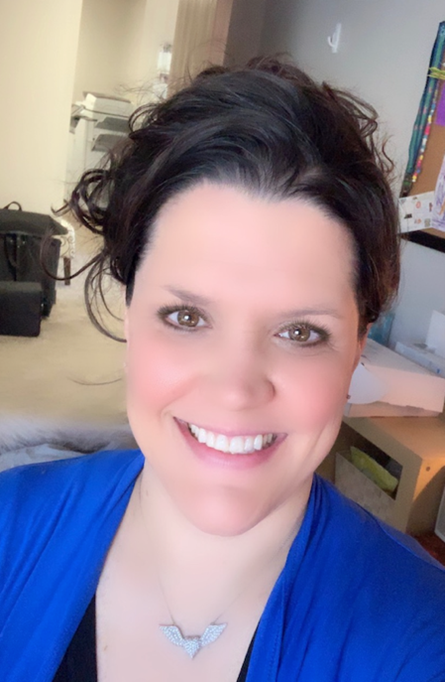 | Courtney Sand, MS, LBA, BCBA, CBIST Courtney Sand, MS, LBA, BCBA, CBIST, is a Licensed and Board Certified Behavior Analyst and a Certified Brain Injury Specialist Trainer. Courtney is currently employed as a Neuro Resource Facilitator with the Brain Injury Alliance of Iowa. Courtney has over 20 years of experience in the field of Applied Behavior Analysis and mental health and disability in both children and adults across a variety of settings, including autism programs, school districts, a community-based neurobehavioral rehabilitation service provider, and an outpatient mental health clinic where she helped establish an Autism Spectrum Disorder Program. Courtney has been working in the field of brain injury for the last 7 years. Courtney enjoys teaching, and has presented at the national and state level. She is especially interested in and passionate about the study of and increasing the awareness around ambiguous loss, a specific type of grief experienced by those whose lives have been touched by brain injury. Courtney is enthusiastic about playing a collaborative part in the process of behavior change, celebrating the seemingly small, but noteworthy steps, toward the achievement of one’s goals. |
Benjamin Siebert, MD, FAAPMR Dr. Siebert has found that investing in his patients is an important part of patient care. While keeping a realistic outlook, he tries to help patients focus on what they can achieve and encourages them to keep an optimistic attitude. He has the unique opportunity to be involved in the lives of his patients at all stages of their conditions, which is a challenging yet rewarding responsibility for him. Dr. Siebert has a special interest in traumatic brain injury, headache, and pain. | |
| Michelle Wild, MA Michelle Ranae Wild is a professor and Department Chair for Coastline College's Acquired Brain Injury (ABI) Program. She has taught cognitive skills to brain injury survivors in the ABI Program for over 30 years. In addition, she is the Founder/CEO of Brain Education Strategies and Technology (BEST). She created the BEST Suite app to help individuals with executive function challenges. Through BEST, she also offers a free webinar series to assist those with cognitive challenges, their caregivers, and the professionals who work with them. Her materials are in use in various schools, rehabilitation facilities, VA hospitals, and military hospitals. |
| Shilo Zeller, BSc, RYT-200 Hr Shilo (she/her/hers) serves as the Manager of the LoveYourBrain Mindset program |
PLANNING COMMITTEE
Karl Curtis, BA, Director* | Sasha St. John, Brain Injury Survivor |
Julie Biesterveld, BA, CBIS, Traumatic Brain Injury Support Program Coordinator * | Benjamin Siebert, MD, FAAPMR Neuroscience Group |
Jan Heinitz, PhD | Traci Snedden, PhD, RN, Assistant Professor University of Wisconsin-Madison School of Nursing |
| Kalli Reinheimer, MSW, CSW, CBIS, VP of Programs, Easterseals Southeast Wisconsin easterseals Southeast Wisconsin |
POLICY ON DISCLOSURE
It is the policy of the University of Wisconsin–Madison Interprofessional Continuing Education Partnership (ICEP) to identify, mitigate and disclose all relevant financial relationships with ineligible companies* held by the speakers/presenters, authors, planners, and other persons who may influence content of this accredited continuing education (CE). In addition, speakers, presenters and authors must disclose any planned discussion of unlabeled/unapproved uses of drugs or devices during their presentation.
For this accredited continuing education activity all relevant financial relationships have been mitigated and detailed disclosures are listed below.
*Ineligible companies are those whose primary business is producing, marketing, selling, re-selling, or distributing healthcare products used by or on, patients.
The ACCME does not consider providers of clinical services directly to patients to be ineligible companies.
Name | Role | Financial Relationship Disclosures | Discussion of Unlabeled/ Unapproved uses of drugs/devices in presentation? |
Nina Berge, BA | UW–Madison School of Nursing, Subcommittee | No relevant financial relationships with ineligible companies to disclose. | No |
Julie Biesterveld, BA, CBIS | Co-Chair & Host | No relevant financial relationships with ineligible companies to disclose. | No |
| Danielle Ciccone-Coutre, PsyD, ABPP | Speaker | No relevant financial relationships with ineligible companies to disclose. | No |
Karl Curtis, BA | Co-Chair, Host & Speaker | No relevant financial relationships with ineligible companies to disclose. | No |
Sue Gaard, MSN, RN | UW–Madison School of Nursing, Subcommittee | No relevant financial relationships with ineligible companies to disclose. | No |
Jan Heinitz, PhD | Planning Committee Member | No relevant financial relationships with ineligible companies to disclose. | No |
Diane Hernandez, MS | Speaker | No relevant financial relationships with ineligible companies to disclose. | No |
Jerry Hoepner, PhD, CCC-SLP, ASHA Fellow | Speaker | No relevant financial relationships with ineligible companies to disclose. | No |
Amy Jordan | Speaker | No relevant financial relationships with ineligible companies to disclose. | No |
Craig Jordan | Speaker | No relevant financial relationships with ineligible companies to disclose. | No |
Grace Leonard, EdM | UW–Madison School of Nursing, Subcommittee | No relevant financial relationships with ineligible companies to disclose. | No |
Lisa Monopoli | Speaker | No relevant financial relationships with ineligible companies to disclose. | No |
Tracy Mrochek, MPA, RN | UW–Madison School of Nursing, Subcommittee | No relevant financial relationships with ineligible companies to disclose. | No |
Audrey Nelson, MS | Speaker | No relevant financial relationships with ineligible companies to disclose. | No |
Valentine Oluchi, MS | Planning Committee Member | No relevant financial relationships with ineligible companies to disclose. | No |
Kathryn Paulson | Speaker | No relevant financial relationships to disclose | No |
Kalli Reinheimer, MSW, CSW, CBIS | Speaker & Planning Committee Member | No relevant financial relationships with ineligible companies to disclose. | No |
Peggy Rynearson, BA | UW–Madison School of Nursing, Subcommittee (former) | No relevant financial relationships with ineligible companies to disclose. | No |
Courtney Sand, MS, LBA, BCBA, CBIST | Speaker | No relevant financial relationships to disclose | No |
Benjamin Siebert, MD, MD, FAAPMR | Speaker & Planning Committee Member | No relevant financial relationships to disclose | No |
Traci Snedden, PhD, RN | Planning Committee Member | No relevant financial relationships with ineligible companies to disclose. | No |
Sasha St. John | Planning Committee Member | No relevant financial relationships with ineligible companies to disclose. | No |
Michelle Wild, MS | Speaker | No relevant financial relationships with ineligible companies to disclose. | No |
The University of Wisconsin provides equal opportunities in employment and programming, including Title IX requirements. The University of Wisconsin fully complies with the legal requirements of the ADA and the rules and regulations thereof. If any participant in this educational activity is in need of accommodations, please contact [email protected].
Accreditation Statement
 | In support of improving patient care, this activity has been planned and implemented by the University of Wisconsin–Madison ICEP, The Brain Injury Alliance of Wisconsin, and SOAR Fox Cities. The University of Wisconsin–Madison ICEP is jointly accredited by the Accreditation Council for Continuing Medical Education (ACCME), the Accreditation Council for Pharmacy Education (ACPE), and the American Nurses Credentialing Center (ANCC), to provide continuing education for the healthcare team. |
Credit Designation Statements
American Medical Association (AMA)
The University of Wisconsin–Madison ICEP designates this Virtual Live activity for a maximum of 10.00 AMA PRA Category 1 Credit™. Physicians should claim only the credit commensurate with the extent of their participation in the activity.
American Nurses Credentialing Center (ANCC)
The University of Wisconsin–Madison ICEP designates this Virtual Live activity for a maximum of 10.00 ANCC contact hours.
ASWB Approved Continuing Education (ACE) – Social Work Credit
As a Jointly Accredited Organization, the University of Wisconsin – Madison ICEP is approved to offer social work continuing education by the Association of Social Work Boards (ASWB) Approved Continuing Education (ACE) program. Organizations, not individual courses, are approved under this program. State and provincial regulatory boards have the final authority to determine whether an individual course may be accepted for continuing education credit. University of Wisconsin–Madison ICEP maintains responsibility for this course. Social workers completing this course receive 10.00 virtual live continuing education credits.
American Psychological Association (APA)
 | Continuing Education (CE) credits for psychologists are provided through the co-sponsorship of the American Psychological Association (APA) Office of Continuing Education in Psychology (CEP). The APA CEP Office maintains responsibility for the content of the programs. |
Continuing Education Units (CEUs)
The University of Wisconsin–Madison ICEP, as a member of the University Professional & Continuing Education Association (UPCEA), authorizes this Internet Live activity for 1.0 continuing education units (CEUs) or 10.00 hours.
Available Credit
- 10.00 AMA PRA Category 1 Credit™
- 10.00 ANCC Contact Hours
- 10.00 APA CE Credits
- 10.00 University of Wisconsin–Madison Continuing Education Hours
- 10.00 Approved for AMA PRA Category 1 Credit™
Check back periodically for an up-to-date list of exhibitors.
Click on the link to enter their virtual "booth."
Exhibitor "drop ins" will be during conference breaks on May 25 and May 26, 2022.
Conference break times:
Exhibitors |
INTERESTED IN SPONSORING THIS CONFERENCE?
Julie Biesterveld, BA, CBIS, Traumatic Brain Injury Support Program Coordinator with SOAR Fox Cities
QUESTIONS?
REGISTRATION
CONFERENCE INFORMATION
Julie Biesterveld, BA, CBIS, Traumatic Brain Injury Support Program Coordinator with SOAR Fox Cities
Karl Curtis, BA, Executive Director Emeritus with the Brain Injury Alliance of Wisconsin
TECHNOLOGY
Grace Leonard, EdM, BA, Instructional Designer, University of Wisconsin–Madison School of Nursing
Required Hardware/software
Free, current version of Chrome, Firefox, Safari, or Microsoft Edge with audio and video capabilities. Some older browsers and Internet Explorer could produce error messages or not display the content correctly.

 Facebook
Facebook X
X LinkedIn
LinkedIn Forward
Forward

